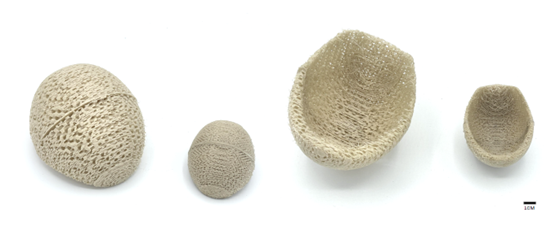Sustainable BioComposites



Our research focuses on developing sustainable composite materials that replace traditional composites, which are environmentally harmful due to CO₂ emissions and limited recyclability. By combining agricultural waste fibers (like flax) with bioplastic matrices (such as PLA), we've created materials that are both eco-friendly and mechanically robust.
Highlights:
-
Material Innovation: PLA and flax fibers were selected for their availability, mechanical properties, and sustainability. Adjusting processing temperatures alters the visual properties, broadening application possibilities.
-
Functionally Graded Lattices: Utilizing advanced 3D printing technologies, we designed lattice structures with variable densities, enabling precise control over mechanical properties like stiffness, strength, and flexibility. The use of NTop software facilitated the creation of intricate graded geometries.
-
Practical Application - Bicycle Helmet: We explored the design of a sustainable bicycle helmet, highlighting the environmental advantages and improved safety and comfort achievable through our lattice structures. Our approach emphasizes biodegradability and reduced carbon footprint compared to traditional helmets.
-
Potential Applications: Our functionally graded lattices are versatile, finding applications in:
-
Furniture
-
Lighting
-
Footwear
-
Eyewear
-
Architectural partitions
-
Future Directions:
-
Collaboration on large-scale 3D printing technologies.
-
Exploration of new fibers (e.g., pineapple fibers).
-
Expansion into custom filament manufacturing.
-
Further mechanical testing and optimization of biocomposite lattices.
Applications
Speculative Applications generating using AI
ATTRIBUTION
MaP+S Group : Saurabh Mhatre, Amelia Gan, Dan Tish, Martin Bechthold
Industry Partner - Advanced Multitech Group, Taiwan
MEDIA






























